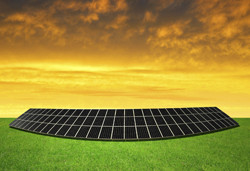Advancing energy research across Europe
The NCPs help form networks through guidance, practical information and assistance regarding programme participation. This can be an advantage and a disadvantage because of their inherent nationality. Though NCPs help applicants and participants in their own languages, this also creates a barrier to uniform practices across national borders. With EU funding, the project C-ENERGY +(opens in new window) set up a network of better-trained participants, thus ensuring broader and faster dissemination of energy-related topics in FP7. Involving NCPs from different countries, C-ENERGY + focused on sharing good practices and promoting transnational cooperation. The 21 Energy NCPs combined their expertise, efforts and resources, and used them more effectively to benefit all network members. Researchers seeking advice from new NCPs may be offered insufficient advice regarding the FPs. Promoting the harmonisation of energy NCP services helped researchers improve the overall quality of proposals. As a consequence, the number of submissions was reduced. Through NCPs, correctly structured proposals encounter less implementation difficulties, thus enhancing the impact of the energy programme and promoting research. C-ENERGY + organised a number of networking events and training courses. Four international brokerage events were organised by the partners to encourage the formation of international consortia. The partners also participated in brokerage events organised by other networks and established a formal cooperation agreement with the Intelligent Energy Sector Group of the European Enterprise Network (EEN). A number of training sessions were held for Energy NCPs. These included several training visits to gain more knowledge from experienced colleagues and learn about the workings of their organisations. Two workshops and four training events for research organisations were also organised. The project increased the overall quality and visibility of the Energy NCPs, and promoted participation of third countries in FPs. Moreover, the communication lines between Energy NCPs and the European Commission were substantially improved.



